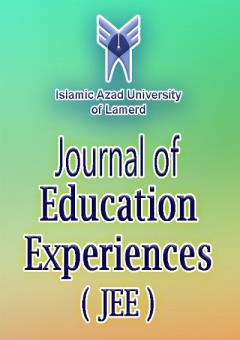The effectiveness of Problem-Solving Training on EFL Learners’ positive orientation and language teacher immunity
Subject Areas :
Abozar Aghaei
1
,
Mohammad Rostampour
2
*
![]() ,
Hajar Aghaei
3
,
Hajar Aghaei
3
1 - Ph.D. candidate of TEFL, department of English language teaching, Shiraz branch, Islamic Azad university, Shiraz, Iran.
2 - Assistant professor of TEFL, Department of English Language Teaching, Shiraz Branch, Islamic Azad University, Shiraz, Iran.
3 - Ph.D. student in psychology, Department of Psychology, Tabriz Branch, Islamic Azad University, Tabriz, Iran.
Keywords: EFL learners, language teacher immunity, positive orientation, problem-solving training,
Abstract :
This study was aimed to investigate the effectiveness of problem-solving training on EFL learners’ positive orientation and language teacher immunity. This study was quasi-experimental research and pre-test and post-test design and performed on 20 EFL learners and 2 English language teachers at Shahid Motahari high school in Farrashband. They were randomly divided in 2 groups (11 in control group and 11 in experimental group). The researcher used three instruments: problem-solving training protocol (D'Zurilla & Coldfried, 1971), positive orientation (Caprara et al., 2012) and questionnaire and language teacher immunity questionnaire (Hiver, 2017). In the present study, the experimental group received eight sessions of problem-solving training twice a week for 120 minutes while the control group received none. The results of multivariate analysis of covariance presented that problem-solving training significantly increased the scores of EFL learners’ positive orientation and language teacher immunity (P˂0/001). Therefore, it can be said that problem-solving training affects EFL learners’ positive orientation and language teacher immunity.

